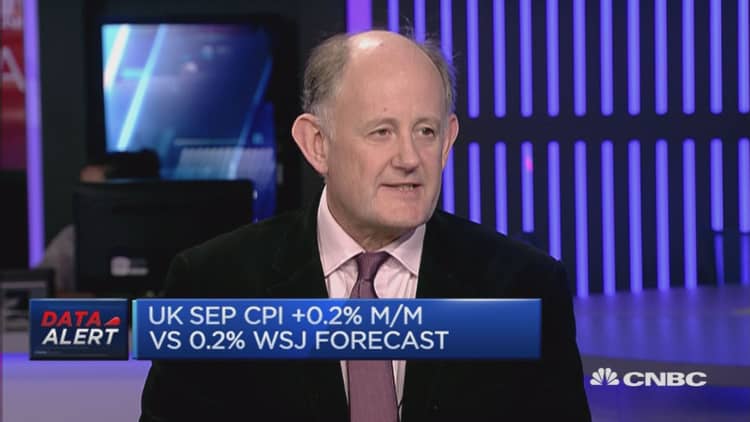As tensions within the U.K. grocery market grow on the back of the falling value of the pound, analysts have started to wonder which company will be the first to pass on the costs to consumers.
British shoppers faced restrictions on certain Unilever products last week – including Ben & Jerry's and Marmite – after the supplier told Tesco, and other big grocers, to increase prices to offset the rising costs of food production.
"At the moment, it is a case of which one of these grocery companies are going to be the first to pass on the inflationary pressure that we are going to start seeing impacting into next year," Alex Dryden, global market strategist at J.P. Morgan Asset Management, told CNBC on Tuesday.
"Which one of them breaks first will be sort of interesting considering they have been a bit on a price war for the last few years, as they have been benefiting from falling prices and they have tried to compete that on the downside. It will be interesting to see which one of them passes that cost on to the outside now that we are starting to see a rebound."
"Inflation next year is really going to change the dynamics for investors," Dryden added.
Last Thursday, media reports suggested that Unilever asked grocer firms to increase their prices as much as 10 percent on all its products. But, grocers are opposing such pressure, claiming some of the products are produced in the U.K. and do not suffer from the fall in sterling. Tesco and Unilever reached an agreement but have not disclosed any details of the solution found. According to the U.K.'s Guardian newspaper, Unilever said it worked "closely" with Tesco to achieve a compromise and to guarantee its brands were once again available.

On Tuesday, the statistics group Kantar U.K. reported that Tesco sales went up by 3.1 percent in the first 12 weeks to October 9 – the first time since March of last year. Kantar U.K. also said that Tesco grew ahead of its market competitors, but overall the sector posted a 0.8 percent increase on last year.
"Tesco has attracted a further 228,000 shoppers through its doors to help the grocer grow to a 28.2 percent share of the market – its first year-on-year market share gain since 2011," the group said in a statement.
U.K. inflation data out Tuesday showed the biggest yearly rise since November 2014. According to the U.K.'s Office of National Statistics, inflation went up 1 percent year-on-year. Sterling rose 0.8 percent for the session on Tuesday, hitting $1.23 for the first time since October 12.
However, Mike Prestwood, head of inflation for the Office of National Statistics told Reuters: "There is no explicit evidence the lower pound is pushing up the prices of everyday consumer goods."


